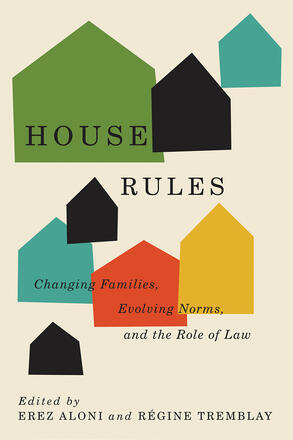
House Rules
Changing Families, Evolving Norms, and the Role of the Law
Description
The paradigm of family has shifted rapidly and dramatically, from nuclear unit to diverse constellations of intimacy. At the same time, some norms resist change, such as women’s continuing role as primary care providers despite their increased uptake of paid work. This tension between transformation and stasis in family arrangements has an impact on economic, emotional, and legal aspects of daily life. House Rules critically explores the intertwining of norms and laws that govern familial relationships. This incisive collection provides tools to analyze those difficulties and, ultimately, to design laws to better respond to ongoing change and avoid entrenching inequalities.